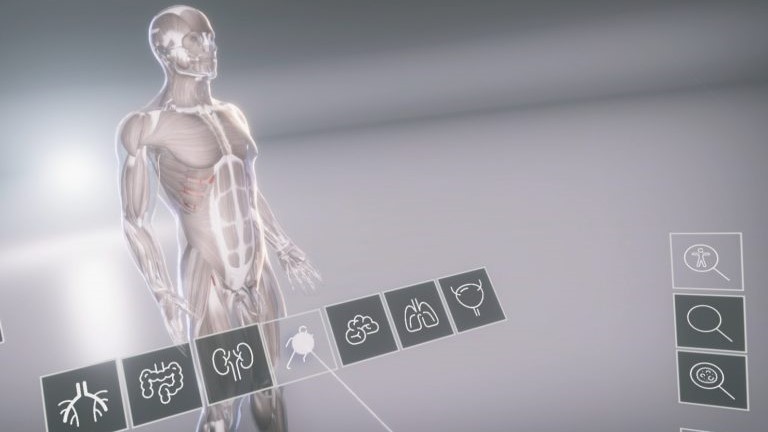Vodafone uses Standalone 5G to power virtual university lessons
Vodafone uses SA 5G to power VR app for students

Sign up for breaking news, reviews, opinion, top tech deals, and more.
You are now subscribed
Your newsletter sign-up was successful
Vodafone is using a Virtual Reality (VR) digital learning application to showcase the virtues of standalone 5G (SA 5G), marking the first time the technology has been used commercially in the UK.
Nearly all commercial 5G deployments to date have relied on Non-standalone 5G (NSA 5G), which uses new radio technologies but still relies on the underlying 5G core.
SA 5G uses a new virtual, cloud-based core that allows data to be processed closer to the point of collection and enables features like network slicing. This allows for guaranteed speeds, enhanced reliability and ultra-low latency.
- Nokia offers standalone 5G private wireless gear
- 5G in the UK: everything you need to know
- Vodafone builds UK's first private 5G network
Vodafone SA 5G
These characteristics will be essential for some of the most revolutionary 5G applications – including the Industrial Internet of Things (IIoT).
Vodafone built a SA 5G network at the University of Coventry earlier this year, hoping to test future teaching technologies.
The first fruit of this partnership is an application for medical students that allows lecturers to use Nvidia’s Cloud XR technology to provide a real-time, interactive tour of the human body. Students access the lesson via any device – smartphone, laptop or tablet.
While digital lessons like this have been possible in the past, they have had to be pre-recorded, linear sessions. The low latency features of SA 5G means lecturers can interact with the body in real time and use a headset with a smartphone, rather than tether to a PC. Meanwhile, students can ask questions in real time, improving the effectiveness of teaching.
Sign up to the TechRadar Pro newsletter to get all the top news, opinion, features and guidance your business needs to succeed!
“Coventry University is always looking at ways of pushing the boundaries of teaching and learning to improve the student experience,” said Dr Natasha Taylor, an associate professor at Coventry University’s Faculty of Health and Life Sciences.
“I can put the headset on, and 5G allows the learner to access high-resolution images and videos remotely, anywhere in the world, and [they] are able to ask questions in real-time.”
The university says digital learning will never replace in-person teaching, but will instead complement it. Such applications will have particular value in the upcoming academic year as universities adjust to lockdown restrictions. Many institutions are advocates of ‘flexible’ learning which will see students participate in a combination of digital and in-person instruction.
- Here are the best Vodafone mobile phone deals
Steve McCaskill is TechRadar Pro's resident mobile industry expert, covering all aspects of the UK and global news, from operators to service providers and everything in between. He is a former editor of Silicon UK and journalist with over a decade's experience in the technology industry, writing about technology, in particular, telecoms, mobile and sports tech, sports, video games and media.